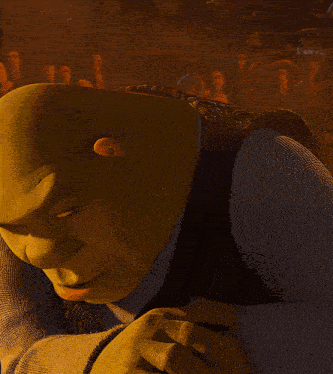Ever had that moment when life spirals out of control and you desperately need a reset button? Jacob certainly did! In Genesis 35, our reformed trickster faces the aftermath of his family's vengeful massacre at Shechem. His sons have turned murderous, the surrounding nations want him dead, and his household is a spiritual mess.
What's God's solution? "Go back to Bethel"—the place where Jacob first encountered God decades earlier. This isn't just a geographical journey but a spiritual homecoming that required purification, surrender of idols, and reconnection with divine purpose. Sometimes moving forward actually means going back to where you first met God!
The Anatomy of a Spiritual Reset
Genesis 35 moves with the urgency of divine intervention. "Then God said to Jacob, 'Go up to Bethel.'" This divine directive sets everything in motion. The journey unfolds in revealing stages:
Thanks for reading! Subscribe for free to receive new posts and support my work.
Crisis aftermath → Divine recall to origins → Spiritual housecleaning → Renewed covenant → Personal loss → Family legacy documented
This isn't just chronological progression – it's revealing something profound about spiritual renewal. When our lives derail, God often calls us back to our "Bethel"—the place of original encounter and commitment—before launching us forward again. Each phase of Jacob's journey illuminates crucial aspects of authentic spiritual restoration.
SOUNDBITE WISDOM
"Sometimes the most progressive step forward is actually a return to your spiritual foundations."
A Chapter in Sections
Verses 1-5: The Return Call and Spiritual Purification
God commands Jacob to return to Bethel, prompting a massive family purification ritual. Foreign gods surrendered, earrings removed, clean garments donned.
Verses 6-8: Arrival and Remembrance
Jacob builds an altar at Bethel, reconnecting with his original encounter with God. The death of Rebekah's nurse marks the passing of the old era.
Verses 9-15: Identity Confirmation and Renewed Promise
God reaffirms Jacob's new name (Israel) and renews the covenant promises of land, nations, and kings. Jacob sets up a memorial pillar.
Verses 16-20: Tragedy Strikes – Rachel Dies
Rachel dies giving birth to Benjamin, a devastating loss in the midst of spiritual renewal.
Verses 21-29: Family Disruption and Genealogical Establishment
Reuben's sin, Jacob's twelve sons listed, and Isaac's death at 180 years old.
But here's what's fascinating – notice how the chapter bookends promise with pain? It begins with divine direction after the Shechem disaster and ends with both Reuben's betrayal and Isaac's death. Spiritual renewal doesn't eliminate life's hardships but provides the foundation to endure them.
The Reality Check: Pure Before Progress
When we reach the purification scene, the text becomes strikingly practical. Before moving an inch toward Bethel, Jacob commands his entire household: "Get rid of the foreign gods you have with you, purify yourselves and change your clothes" (Genesis 35:2).
This is revolutionary. In a narrative filled with dramatic divine encounters and covenant promises, Genesis 35 grounds spiritual renewal in practical housecleaning. Jacob doesn't just worship from a distance—he demands concrete action from his entire household.
INTERACTIVE MOMENT
Reflection Prompt: What "foreign gods" might you need to bury under your own terebinth tree?
□ Career ambitions that have displaced God's calling
□ Relationship attachments that compete with spiritual priorities
□ Material possessions that have become identity markers
□ Habitual comforts that function as emotional idols
□ Cultural values that contradict biblical wisdom
Christ as our Purifier
When God commands Jacob to "go up to Bethel," the patriarch immediately calls for spiritual purification: "Put away the foreign gods that are among you, and purify yourselves and change your garments" (v.2). This act of removing idols and changing clothes prefigures how Christ purifies us from our idolatries and clothes us in His righteousness.
Where Jacob could only command external cleansing, Jesus provides internal transformation: "Christ loved the church and gave himself up for her, that he might sanctify her, having cleansed her by the washing of water with the word" (Ephesians 5:25-26).
WALK THRU QUIZ
Mystery Question: In Genesis 35, God appears to Jacob twice. What significant thing happens in the second appearance that didn't occur in the first?
A) God changes Jacob's name to Israel
B) God promises numerous descendants
C) God reveals the promised land boundaries
D) God promises to be with Jacob wherever he goes
Scroll down for the answer!
Answer: A) God changes Jacob's name to Israel
Wait, didn't this already happen in Genesis 32 during the wrestling match? Yes! This is one of scripture's most fascinating "duplications." God reaffirms Jacob's name change to Israel, demonstrating how spiritual identity sometimes needs reinforcement. The first naming occurred in private struggle; this second naming happens in established worship. Both were necessary for Jacob's transformation to fully take hold.
The Bookends of Bethel
Genesis 35 creates a powerful narrative circle with Genesis 28. The same location (Bethel) frames Jacob's entire spiritual journey:
Genesis 28: Jacob fleeing, alone, deceiver, encounters God in a dream
Genesis 35: Jacob returning, with family, renamed Israel, encounters God awake
This bookending technique highlights Jacob's transformation. The frightened trickster has become a tribal patriarch. The solitary fugitive now leads a large household. The man who bargained with God now follows divine direction explicitly.
The theological significance is profound: God meets us where we are but doesn't leave us there. Jacob's return to Bethel wasn't regression but a spiral upward—revisiting his spiritual origin point from a higher perspective.
FROM BETHEL TO CALVARY
Genesis 35's return to Bethel anticipates how Christ calls us to spiritual reset. Just as Jacob demanded his household purify themselves and surrender their idols, Jesus calls believers to similar purification and surrender.
The death of Rachel—Jacob's beloved—during this journey of renewal foreshadows how following God often involves painful sacrifice. Yet just as Benjamin ("son of my right hand") was born through Rachel's death, new life emerges through our losses when we walk with God.
Most profoundly, Jacob's renewed name and covenant at Bethel points to our new identity in Christ. Just as Jacob needed to return to where he first met God to reestablish his calling, we continually return to the cross to renew our identity and purpose.
THE STUNNING TRUTH OF GENESIS 35
Look at this revelation that almost knocked me out this morning! In the middle of Jacob's return to Bethel—right after God renews his covenant and confirms his identity—we see one of scripture's most devastating sequences: Rachel dies in childbirth, Reuben defiles his father's bed, and Isaac breathes his last.
DO YOU SEE IT?
This isn't a contradiction—it's a DIVINE REVELATION about spiritual renewal! God didn't call Jacob back to Bethel to shield him from life's tragedies, but to PREPARE him for them!
The old Jacob would have been DESTROYED by these losses. But the renewed Israel—the man who buried his idols, purified his household, and reconnected with his spiritual foundation—could now STAND FIRM through devastating blows!
This is why God calls us back to our spiritual foundations before our greatest tests—not to prevent our pain but to position us to endure it with unshakable identity!
The same God who met Jacob at Bethel as a fugitive met him there again as a patriarch, knowing full well what losses awaited him. Yet God's message wasn't "I'll shield you from suffering" but "I'll strengthen you THROUGH it."
Can I tell you something? Your current call back to spiritual basics isn't punishment—it's PREPARATION for battles God knows are coming! Your "Return to Bethel" moment isn't regression—it's God positioning you to face your Rachel's death, your family betrayal, your Isaac's passing NOT as a defeated victim but as a covenant carrier!
SOOOO GOD PREPARES US BEFORE HE TESTS US!
Jacob left Bethel not knowing what awaited him, but God knew—and that's why the reset had to come first. The foundation had to be solid before the storms hit.
Take that praise break! Your spiritual reset isn't a detour—it's divine positioning for the next chapter of your story!
Your Turn to Walk Through
As you read Genesis 35 again (and I encourage you to do so), consider:
What is your "Bethel"—the place or moment of original encounter with God that might need revisiting?
What "foreign gods" need to be buried before you can experience spiritual renewal?
How has God reinforced your spiritual identity during different seasons of life?
Remember, this isn't just an ancient family drama—it's a pattern for spiritual reset when life spirals out of control, a testament to God's faithfulness across generations, and an invitation to return to your foundations before moving forward again.
Join the Conversation
Genesis 35 isn't just Jacob's story—it's a powerful picture of what following Jesus often looks like. Like Jacob, we all face seasons when our carefully constructed lives seem to implode. Family drama erupts, poor decisions haunt us, and we find ourselves surrounded by "foreign gods" we never intended to collect.
It's precisely at this moment—when we're surrounded by the wreckage of our choices—that Jesus calls us back to our spiritual foundations. Following Him often means returning to basics: surrendering our idols, purifying our priorities, and recommitting to our core identity in Him.
This "return to Bethel" isn't a punishment but a preparation. Jacob's story reminds us that even after spiritual renewal, life brings both promise and pain. Rachel still died. Reuben still sinned. But Jacob faced these devastating realities not as a trickster, but as Israel—a man grounded in divine encounter and purpose.
What's your Bethel, and is it time to return?









